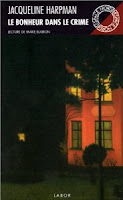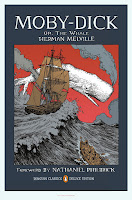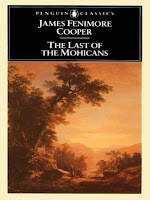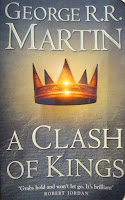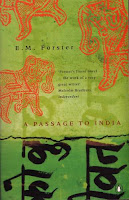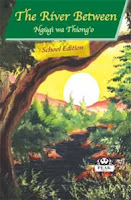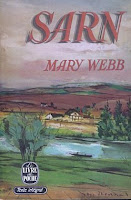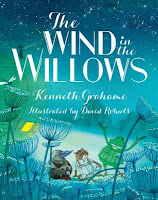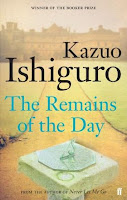AUTEURS' LIBRARY
Austen Jane
(1)
Barrie J. M.
(1)
Bowen Elizabeth
(1)
Cooper James Fenimore
(2)
Cronin A.J.
(2)
Dostoyevsky Fyodor
(1)
Ee Susan
(2)
Farland David
(1)
Fitzgerald F. Scott
(1)
Flewelling Lynn
(1)
Forster E. M.
(2)
Gaskell Elizabeth
(1)
Golding William
(1)
Grahame Kenneth
(1)
Harpman Jacqueline
(3)
Hobb Robin
(5)
Ishiguro Kazuo
(1)
Le Guin Ursula K.
(2)
London Jack
(1)
Martin George R. R.
(3)
Melville Herman
(1)
Murail Marie-Aude
(1)
Ngῦgῖ wa Thiong’o
(1)
Pilcher Rosamunde
(1)
Ryan Anthony
(2)
Salinger J. D.
(1)
Shaw George Bernard
(2)
Stegner Wallace
(2)
Steinbeck John
(1)
Stevenson Robert Louis
(2)
Tarkington Booth
(1)
Vaughan Brian K.
(1)
Webb Mary
(2)
Wharton Edith
(1)
Friday, 28 August 2015
Les Clés du Royaume- "" Mangez moins, les portes du paradis sont étroites.""
« « Le
Christ était un homme parfait, mais Confucius était plus drôle ! » »
14
« « Et cet incident choquant : une de vos
meilleures paroissiennes, Mme Glendenning, qui ne peut rien à son obésité, est
venue vous trouver pour vous demander des conseils, comme à son directeur de
conscience, sur quoi vous l’avez considérée de haut en bas et lui avez
recommandé : « Mangez moins, les portes du paradis sont étroites. » » 15
« « Aujourd’hui,
si quelqu’un croit en Dieu, personne ne doute qu’il soit hypocrite ou idiot ! » »
138
« « Ne confondez-vous pas la luxure avec la nature ?
- Jésus, Marie, Joseph ! Et quelle est la différence ?
- Celle même qui sépare la maladie de la santé. » » 157
- Jésus, Marie, Joseph ! Et quelle est la différence ?
- Celle même qui sépare la maladie de la santé. » » 157
« Pour un homme
si modeste, si conscient des limites de son intelligence, sa conviction de l’inexistence
de Dieu est extraordinairement positive. » 188
« La gorge de Mme Neily se contracte convulsivement.
Elle s’efforce stupidement de dissimuler la bouteille dans sa robe de chambre.
Enfin, elle articule : « Il faut bien que je la soutienne un peu…après
toutes ces émotions…c’est de la bière pour malades. » 196
« Le miracle de
la foi : c’est la foi elle-même qui
constitue le miracle. » 205
« «O mon Dieu ! nous sommes incapables de
commencer même à vous concevoir. » » 205
« « Votre
Sainteté ! […] Et depuis quand êtes-vous médecin ? Tant pis :
guéris ceux que tu peux et tue le reste. » » 246
Un mourant : « Je
cherchais l’aventure, j’ai rencontré la plus grande. » 307
« « Dieu ne
nous juge pas d’après nos croyances…mais d’après nos actes. » » 314
« « Comment définissez-vous un chrétien ?
Celui qui va à l’église un jour sur sept, et ment, calomnie et trompe son
prochain pendant les six autres ? » » 314
« « C’est la
vie…il faut toujours recommencer, lorsque tout est perdu ! » » 321
« « Nombreuses sont les portes du ciel. Nous en
choisissons une, ces nouveaux prédicateurs entrent par une autre. » »
345
« « Vous
autres missionnaires, vous arrivez avec l’Evangile, et vous repartez avec notre
pays en poche. » » 419
« Aujourd’hui, naissance du cinquième enfant de Joseph. Comme la vie file !
Qui aurait pensé que ce brave garçon, timide, bavard, susceptible, deviendrait
un jour un patriarche ? Son goût prononcé pour le sucre aurait dû me le
rendre suspect. » 428
Torturés et menacés de mort : « «Pensez-vous, maître, que nous retournerons jamais à la mission ? »
- Si nous n’y retournons pas, Josué, le bon Dieu te donnera un cheval encore plus beau au ciel. » Après un temps, Josué reprend d’une voix faible : « Je crois, maître, que je préférerais le petit poney de la mission. » » 455
- Si nous n’y retournons pas, Josué, le bon Dieu te donnera un cheval encore plus beau au ciel. » Après un temps, Josué reprend d’une voix faible : « Je crois, maître, que je préférerais le petit poney de la mission. » » 455
« Son ton est pratique, comme si elle discutait le menu
du dîner. « Ne nous illusionnons pas, mon chéri. S’il nous laisse en vie,
c’est uniquement pour nous faire subir une mort plus horrible. » 456
« « Qui d’entre
nous pourrait avoir la moindre idée de Dieu ? » répliqua le prêtre,
toujours souriant. « Le mot « Dieu » est une expression humaine…qui
traduit notre adoration envers notre Créateur…» » 494
Auteur's library
A.J. Cronin
Les Clés du Royaume (The Keys of the Kingdom)
1941
Les Clés du Royaume (The Keys of the Kingdom)
1941
Un véritable roman de mœurs, Les
Clés du Royaume étudie le clergé catholique, sa corruption, ses contradictions de
valeurs (foi vs. dogme), la place de la religion et du missionnaire dans la
société, tout en prêchant une tolérance religieuse parfois trop simpliste. Un livre sur la trajectoire des vies, où l’on termine là où l’on a
commencé. De la même trame que Sarn, ce livre semble vieillot, plein de
morale, l’histoire d’un long drame où les personnages sont autant soumis
aux caprices du destin qu’à la plume impitoyable de l’auteur. Mais, c'est avant tout un roman qui a mal vieilli.
Il se lit comme un fleuve de tragédie où les personnages, dénués de volition, se trouvent secoués d’un drame à l’autre. Même le violeur incestueux est jugé victime de son manque de résolution ! L’ironie étant que Francis, le héros, est prêt à tuer des gens qui menacent de violer les femmes de sa mission, mais excuse presque le passage à l’acte de Ned. Pourquoi ? parce qu’il le connaît, qu’il juge son acte “out of character”, quand plusieurs choses suggéraient déjà son attitude vicelarde. Peut-être Cronin met-il seulement en scène le 19ème siècle, en proie à ses préjugés et ses idées reçues; mais cela reste étrange que dans un récit où toutes sortes de maux sont fustigés, le pire d’entre eux, le viol, n’est pas tant condamné que pris en pitié. C’est simple, le violeur se voit doté d’une soudaine conscience (il n’est pas vraiment un mauvais gars, il a juste fait une erreur!) ; la victime, elle, est sacrifiée : ainsi, elle ne nous gênera pas trop avec son traumatisme et servira à épaissir le personnage tragique du héros.
L’histoire est un peu trop prévisible, la suite des évènements trop forcée. Si Cronin jouit du talent de conteur, celui-ci semble gâché dans cette œuvre sommes toutes assez pauvre, et même lassante. Il y a de la substance, mais il faut enlever les couches de lyrisme pour la dégoter ; le roman en devient un recueil de bons moments, plutôt qu’une bonne histoire. L’exaltation de l’écriture empêche le lecteur de se faire son idée, intervient avant de lui laisser le temps de juger et, par là-même, l’écarte des personnages en voulant fausser son jugement. Peut-être que nous n’avons pas le même avis sur Francis que Cronin... Avec son analyse intégrale du personnage, il nous fourre dans les bras son prêtre bien-aimé et exige de nous qu’on le plaigne, encore et encore. Tous les personnages sont créées, caricaturés et peaufinés dans le but de soutenir la thèse chère à l’auteur, selon laquelle son héros est un saint d’humilité désintéressée, un vrai persécuté. Ce martyre (image volontaire du Christ sur la croix?) est entouré de gens passablement mauvais, du violeur à l’orgueilleuse nationaliste et immorale, de gens bons aussi, mais qui, évidemment, sont trop faibles pour pouvoir réagir. Ce procédé génère l’effet contraire : on s‘endurcit par rapport au héros, le récit en devient, à force, rageant, et c’est avec soulagement qu’on tourne la dernière page en se disant : enfin !
Les Clés du Royaume aurait dû s’intituler Le Misérable.
Il se lit comme un fleuve de tragédie où les personnages, dénués de volition, se trouvent secoués d’un drame à l’autre. Même le violeur incestueux est jugé victime de son manque de résolution ! L’ironie étant que Francis, le héros, est prêt à tuer des gens qui menacent de violer les femmes de sa mission, mais excuse presque le passage à l’acte de Ned. Pourquoi ? parce qu’il le connaît, qu’il juge son acte “out of character”, quand plusieurs choses suggéraient déjà son attitude vicelarde. Peut-être Cronin met-il seulement en scène le 19ème siècle, en proie à ses préjugés et ses idées reçues; mais cela reste étrange que dans un récit où toutes sortes de maux sont fustigés, le pire d’entre eux, le viol, n’est pas tant condamné que pris en pitié. C’est simple, le violeur se voit doté d’une soudaine conscience (il n’est pas vraiment un mauvais gars, il a juste fait une erreur!) ; la victime, elle, est sacrifiée : ainsi, elle ne nous gênera pas trop avec son traumatisme et servira à épaissir le personnage tragique du héros.
L’histoire est un peu trop prévisible, la suite des évènements trop forcée. Si Cronin jouit du talent de conteur, celui-ci semble gâché dans cette œuvre sommes toutes assez pauvre, et même lassante. Il y a de la substance, mais il faut enlever les couches de lyrisme pour la dégoter ; le roman en devient un recueil de bons moments, plutôt qu’une bonne histoire. L’exaltation de l’écriture empêche le lecteur de se faire son idée, intervient avant de lui laisser le temps de juger et, par là-même, l’écarte des personnages en voulant fausser son jugement. Peut-être que nous n’avons pas le même avis sur Francis que Cronin... Avec son analyse intégrale du personnage, il nous fourre dans les bras son prêtre bien-aimé et exige de nous qu’on le plaigne, encore et encore. Tous les personnages sont créées, caricaturés et peaufinés dans le but de soutenir la thèse chère à l’auteur, selon laquelle son héros est un saint d’humilité désintéressée, un vrai persécuté. Ce martyre (image volontaire du Christ sur la croix?) est entouré de gens passablement mauvais, du violeur à l’orgueilleuse nationaliste et immorale, de gens bons aussi, mais qui, évidemment, sont trop faibles pour pouvoir réagir. Ce procédé génère l’effet contraire : on s‘endurcit par rapport au héros, le récit en devient, à force, rageant, et c’est avec soulagement qu’on tourne la dernière page en se disant : enfin !
Les Clés du Royaume aurait dû s’intituler Le Misérable.
Tags: dogme vs. foi, late 19th-early 20th century, mélodrame, guerillas et kidnappings, survol au-dessus de la Chine du début 20ème siècle et l'invasion des missionnaires, l'administration du clergé catholique, le tragique destin de Francis Chisholm, attitude chrétienne envers les Chinois, roman de mœurs: le Royaume-Uni rencontre la Chine, la vie d'un homme et à travers lui, celle de sa famille, l’Église et la société, l'épreuve de la vie et les clés du Royaume, la mentalité chinoise, l'hypocrisie du clergé, pomme sous l'appentis et romance en soutane
Monday, 24 August 2015
All books have a sozy somewhere...
"In a hole in the ground there lived"... a badger!
Bag End is Badger's home.
Bilbo, the respectable Hobbit, is Badger, the respectable animal.
One lives in the country, one lives in the Wood, but both are grumpy, cozy, and not interested in the adventures of others...until others force them out of their hole.
We know where Tolkien found some of his inspiration...
We know where Tolkien found some of his inspiration...
Auteur's library
The Wind in the Willows
1908
The most poetic book of prose I’ve ever encountered, The Wind in the Willows is designed to make you happy, which, to me, as far as novels go, generally works to make them better. Accept precariousness and enjoy the day, it says, but without failing your needs and responsibilities, without falling prey to a preaching of letting go of all. It’s about the peace one can find in living life rather than living one’s life, though the book champions firmly and fiercely the right to individuality.
Four very different animals will be our companions, and page after page you realise how human_ yet not just so_ they actually are. Mole is the animal most “like” everybody, which is why we start off with him. Ratty is my personal favourite, so poetic and generous, so earnest and easy. Toad is readers’ most popular character, I think, and he would like that. Old Badger and his charming cozy house is clearly the inspiration behind the Hobbits of Hobbiton, Bywater, and Bag End. Everything about Badger and his home sounds like an older animal version of the advice given by the ale-drinker in The Green Dragon, with the certainty of the ignorant: “Keep your nose out of trouble, and no trouble'll come to you."
Trouble always comes. The book suffuses peace, yes, but does not deny troubles. Without giving you one easy solution to the acknowledged downsides of life, The Wind gives you hope. It infuses you with courage. And when one trouble is solved, the book shrugs its shoulders and seems to wave to Trouble a knowing “Till we meet again…”
If The Wind invites you to snuggle up within its warmth, it never preaches settling; for it’s about change, and, as inevitable as the mouvement of the seasons, change comes through the adventures of the four friends whose themes will range from well-being, the unknown, addiction, life in society, power, wealth, status, propriety, shame, horror, fears, administrative leeching, to the Divine…
Finally, it’s about caring about and for others; about the sheer beauty of nature; the sweetness of life, of the “wild”; all of which you are narrated with just the right touch of humour, wisdom and restraint. In his rich writing, Grahame finds a thousand ways of saying the simplest things, particularly when addressing the river in an invite of words to lushly and leisurely slide on it with him. You do not read The Wind in the Willows; you live it, going from one ambiance to the next in this quite fairy-like, otherworldly, animal life. The telling of the tale is what you might feel if only you opened your eyes to the world around, so very near, opened your eyes to what you see every day but never really look at… What if home was this less-than-perfect thing claiming our return after a long and necessary voyage? What if home was actually nature and people? What if home was to be found at last in what we had antagonised?
A very inspirational piece, it’s actually the most therapeutic work I’ve ever read. With this deeply intelligent tale, Kenneth Grahame gives you the most adult of all children’s books. It feels as home should.
Tags: a toad, a badger, a water rat and a mole, Toad's role-playing, more of Toad's role-playing, the river bank, late 19th-early 20th-century mood, pastoral England, accepting that everybody has flaws, that everybody brings in something new, on hooves and mysticism, moody winter nature, British wit, nostalgia for the adventure of life, nostalgia for the peace of home, adventures and misadventures or how to look for the perfect thing, life without governance, nature's society vs. urban society, life, death and everything else found on a river bank, Toad of Toad Hall or a portrayal of bourgeoisie
Sunday, 23 August 2015
Auteur's library III
 Robin Hobb
Robin HobbFool's Quest
Fitz and The Fool II.
2015
Perfect!
So much better than its predecessor, Fool's Quest gives us much more to work with, without choking us. Rather, it makes us chew little bits of intrigue, it makes them macerate until we’ve almost forgotten these were there, stocked in our mouth, and bang! they reappear, ready to be digested. Threads of intrigue that were long shadowed and forgotten since the first three trilogies? No, they actually come back here and are woven into the bigger intrigue, truly rounding the world of The Realm of the Elderlings again. Or, perhaps for the first time.
If Fitz’s lack of violence in the first half of the book borders on the extreme, it still manages to pass for credible and, script-wise, fulfils a purpose that will pay off in the end as it allows for other things to develop. So much happens, so many little things need to be discussed, analysed, done, that it’s a wonder Hobb could fit it all in one book. She managed, however. You'll hear of the Pirate Isles, Buckkeep Town, brawls in inns, horse rides in the deep of winter, dragons and Elderlings, a jacuzzi, stone-pillars, encampment in the wild, bears, crows, the Rain Wild, Chade's lair, poisons, axes and Verity's sword, torture, sexual violence, magic, magic, magic, the Mountain Kingdom, narwhals, prosperity and integrity, game tables, costumes and disguise, assassin's traps, plunder, Aslevjal, Skill- healings... You get the gist.
Action-packed, the book is much darker, particularly with regards to the treatment of children, perhaps an underlying result of the influence of today’s fantasy fiction. But, the violence is never too graphic or gratuitous; always in line with the scenario, always dealt with in depth.
The intrigue, the themes (particularly that of mirror), the structure of the book, the pace of the different plotlines, the characterisation, the emotions, the wise quips: everything falls into place, exactly as it had in The Farseer Trilogy, exactly as if this was Hobb’s story and not one she creates, as if she was Fitz and had merely set out in his tortured, agonising and somewhat clueless way to tell us all. She tells it perfectly. She’s truly Fitz now, as she hadn’t been in a long time; and while no reader could claim to know him better than Robin Hobb herself, it feels as if she has found him again, wit and skill and all at once.
Fitz is on board again, and while he feels a sense of failure growing in him, he’s much less a broken man, in my mind, than he was in Fool’s Assassin. He feels broken because, having stepped out of the lethargy of Withywoods, having had it wrecked, he’s actually capable of feeling again.
And not only FitzChilvary, but the Fool, Chade, Dutiful, Kettricken and all the others Farseers once more in the foreground… But, I think, the characters that to me made a lot of difference in my appreciation of this book were Motley, Ash and Per_ the first two welcome and refreshing additions to the set and clever bridges between the fool and the assassin, the last one a strong tie-in with Fool’s Assassin. Nettle is as self-satisfied and careless of others as usual and it almost feels as if her selfishness and self-centeredness was even hard on the author for the character, thank the Gods, gets progressively but surely pushed to the background, and even in some places shows signs of maturity. You'd think that at her age and in her condition, it's about time. Bee is as well developed as in the first book, so well in fact that we’re starting to feel like her protectors, caring and fearing for the child, quite like Wolf Father. And even Shun and Lant are allowed to evolve, without a complete turn that would change our first impression of their personalities. Things can still go sour with those two, the narration whispers to us...
By the last few pages, everything is in suspension, not latent as it was in Fool’s Assassin, but at a break, a tide, and if we sense what will be the predominant concerns of the next book (Bee’s fate, Fitz and the Fool’s relationship, Dutiful’s political web, the Dragons, Chade’s new found enemy…), we just don’t know how it will all go.
Beautifully written and beautifully structured, it reads like a melody dancing on hardship, action, tragedy, drama, sorrow, humour, lightness, and wisdom, without ever failing its harmony. Fool’s Quest is easily, and surprisingly, one of the best Fitz’s books.
P.S.1 Malta!
P.S. 2 A kingly stone-dragon!
P.S. 2 A kingly stone-dragon!
Tags: ah, the turmoils of Fitzy's soul, along with the Fool's tortures and Bee's survival quest..., mythopoeia, the idea of national and racial difference, transvestism and mix-up of genders and sexes that won't be solved till the end, I'm sure!, wit/vif and the whole fantasy stables you expect to find, skill/art, wit/vif and Vindeliar's fog, Buckkeep Castle!!!, the big questions: no Fitz without that!, hierarchy within different countries, Dutiful's Cour and it's game of favours and powers, Prince FitzChilvary, his King, and his guard, Hum, hum, Lant and Shun, Find Bee!,
voices in heads, Wolf Father and bonds of personalities, moral righteousness and its diverse opposites, dreams and prophecies, female struggle in a man's world, Verity-Dragon, Elderlings and others of a less than savoury nature, assassin's game = fool's game as Ash and Bee will serve to show, the Servants' fanaticism
Fool's Assassin Fitz and the Fool I.
2014
This one was a little bit like the return of the prodigal son, for which we waited soooo long! And it got me to curse Robin Hobb and congratulate her in turns, leaving me unsure as to whether I liked it, or whether I got tricked into liking it. I still don't know but the way I figure, if a book leaves you both furious and on the verge of falling in love again with people and pairs who are not real, that's a good fantasy book. If a book makes you sleep less and read longer for things that overall you don't even care about, that's a good fantasy book. It means it found a way of telling a tale you did not expect, and did not care for.
Yes, while relentlessly shoving our expectations to the side, Hobb makes you care. And manages a narrow escape after a long début that can only put the reader off (no pun intended, too annoyed for that!).
Objectively, it's no page-turner. There is action but it does not lead necessarily to further action. The intrigue is a long-lasting thinly veiled 'secret': nothing is hidden, but nothing is revealed either. The reader can guess much before Fitz even wonders. Fool's Assassin feels more like a question than the first part of an answer ; a complete turn of the tide that, midway through itself, finds the power to make you wonder. The book relies on gradually building characters and plotlines so as to seek out our interest. You get so much into the 'now' of the page that you forget to ask 'what will happen next?' Past the overlong début, Hobb shows she still knows how to draw us in, even if reluctantly. It is almost as if the first 262 pages had to plunge you into a kind of lethargy to wake you to a reality you tried so hard to avoid. Yet, it works.
And all the while, it leaves you on the edge, wondering and wondering about those Fitz and Fool, turning the page only to find you've got to wonder a 'little' while longer. You close the back cover, thinking "Yes!", yet dreading the uncertainty...Exactly, I think, as this Fitz book was meant to do.
For a more detailed analysis, click here and there.
P.S. I'm rereading the Tawny Man Trilogy and, by comparison, this one is very much imbalanced in terms of structure, leaving us with a feeling of being lost in the narration (a good thing, then, that the 'now' of the page is well done): outside of the obvious, we don't know where this is leading us to. Years are spent in Withywoods, only to leave us with two or three chapters of intrigue-related action. The long long début feels like it wasn't cut at all and, actually, what of it is really necessary to the story? So, while I enjoyed the last part of the book where Bee starts to narrate, still, the whole book could have been better structured as Hobb used to do in the two previous Fitz series. It would have also given us a little more of the two main characters (Fitz is so removed from us!) instead of dwelling for ages on secondary and third characters that are new, or almost new (Riddle, Lant, Shun). As it is, there's not enough interaction with those who have always been there (Dutiful, Kettricken, ...) and who are much more rich.
Tags: ah, the turmoils of Fitzy's soul, and those of another..., mythopoeia, the idea of difference, long long going through the years... yet no saga, life of the manor and country gentry, set in a family context, mix-up of genders and sexes that won't be solved till the end, I'm sure!, wit/vif and the whole fantasy stables you expect to find, skill/art, wit/vif, life of the manor and quick coming and going into Buckkeep Castle, the big questions: no Fitz without that!,
voices in heads and bonds of personalities, moral righteousness and its diverse opposites, dreams and prophecies, action rooted in one place
voices in heads, Wolf Father and bonds of personalities, moral righteousness and its diverse opposites, dreams and prophecies, female struggle in a man's world, Verity-Dragon, Elderlings and others of a less than savoury nature, assassin's game = fool's game as Ash and Bee will serve to show, the Servants' fanaticism
Fool's Assassin Fitz and the Fool I.
2014
This one was a little bit like the return of the prodigal son, for which we waited soooo long! And it got me to curse Robin Hobb and congratulate her in turns, leaving me unsure as to whether I liked it, or whether I got tricked into liking it. I still don't know but the way I figure, if a book leaves you both furious and on the verge of falling in love again with people and pairs who are not real, that's a good fantasy book. If a book makes you sleep less and read longer for things that overall you don't even care about, that's a good fantasy book. It means it found a way of telling a tale you did not expect, and did not care for.
Yes, while relentlessly shoving our expectations to the side, Hobb makes you care. And manages a narrow escape after a long début that can only put the reader off (no pun intended, too annoyed for that!).
Objectively, it's no page-turner. There is action but it does not lead necessarily to further action. The intrigue is a long-lasting thinly veiled 'secret': nothing is hidden, but nothing is revealed either. The reader can guess much before Fitz even wonders. Fool's Assassin feels more like a question than the first part of an answer ; a complete turn of the tide that, midway through itself, finds the power to make you wonder. The book relies on gradually building characters and plotlines so as to seek out our interest. You get so much into the 'now' of the page that you forget to ask 'what will happen next?' Past the overlong début, Hobb shows she still knows how to draw us in, even if reluctantly. It is almost as if the first 262 pages had to plunge you into a kind of lethargy to wake you to a reality you tried so hard to avoid. Yet, it works.
And all the while, it leaves you on the edge, wondering and wondering about those Fitz and Fool, turning the page only to find you've got to wonder a 'little' while longer. You close the back cover, thinking "Yes!", yet dreading the uncertainty...Exactly, I think, as this Fitz book was meant to do.
For a more detailed analysis, click here and there.
P.S. I'm rereading the Tawny Man Trilogy and, by comparison, this one is very much imbalanced in terms of structure, leaving us with a feeling of being lost in the narration (a good thing, then, that the 'now' of the page is well done): outside of the obvious, we don't know where this is leading us to. Years are spent in Withywoods, only to leave us with two or three chapters of intrigue-related action. The long long début feels like it wasn't cut at all and, actually, what of it is really necessary to the story? So, while I enjoyed the last part of the book where Bee starts to narrate, still, the whole book could have been better structured as Hobb used to do in the two previous Fitz series. It would have also given us a little more of the two main characters (Fitz is so removed from us!) instead of dwelling for ages on secondary and third characters that are new, or almost new (Riddle, Lant, Shun). As it is, there's not enough interaction with those who have always been there (Dutiful, Kettricken, ...) and who are much more rich.
Tags: ah, the turmoils of Fitzy's soul, and those of another..., mythopoeia, the idea of difference, long long going through the years... yet no saga, life of the manor and country gentry, set in a family context, mix-up of genders and sexes that won't be solved till the end, I'm sure!, wit/vif and the whole fantasy stables you expect to find, skill/art, wit/vif, life of the manor and quick coming and going into Buckkeep Castle, the big questions: no Fitz without that!,
voices in heads and bonds of personalities, moral righteousness and its diverse opposites, dreams and prophecies, action rooted in one place
Subscribe to:
Comments (Atom)


